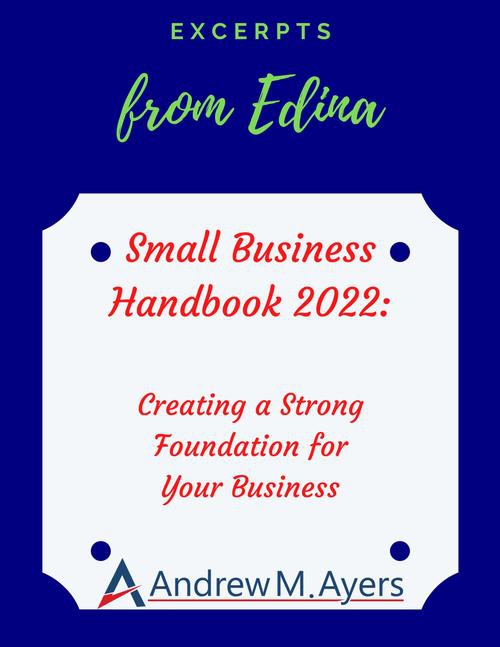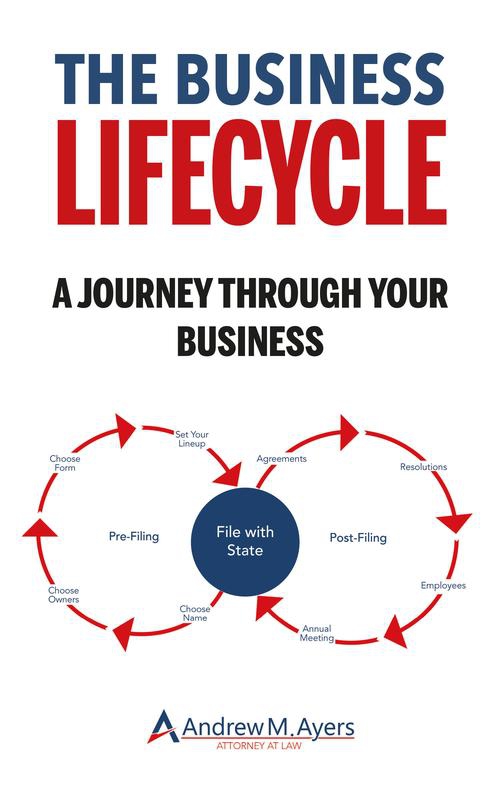We've come to the foundational point of our business lifecycle, the one that's in the middle of the circles, and the one that you come back to at least once a year, and that is your filings, whether it's filing with the state you're located in, filing with the federal government, or filing with a copyright or trademark office. When you get to the filing stage is when things become “real.” Whether you're starting your business or it's the end of the year and you need to make sure your filings are in order, it’s an important step.
If you're just starting out your business, when you get to the filing stage this will be your initial filings with the state. These will be things like your Articles of Incorporation. And when you're setting up your Articles of Incorporation, the question is are you going to do it yourself, or are you going to use the service?
I personally recommend to all my clients that they use a service. The service will make sure that the filings are done correctly. They will give you all of the correct confirmations that your company has been formed in the correct way. And if you incorporate your company, a lot of the filing companies will give you a black binder that has all your important documents in one place. It may not seem important now, but down the road when you need to have all your documents or you need to refer back to something, it's nice to have them all in one place.
As you're setting up your initial filing, most states will require that you have an agent. The agent is the person that the state would contact in case there's an issue with your company. In most states, the agent will be the person who would receive a lawsuit if it's filed against your company. The lawsuit would be sent to the secretary of state who would then look in your file and send the agent the copies of the documents.
You'll also need to figure out who the initial “incorporators” are. This may sound like a very formal job but oftentimes it's simply putting certain names onto the documents that are filed with the state. If you're using a service they can make sure you have the right people chosen for that.
You'll also want to make sure you get a Tax ID set up for your business. Aside from the sole proprietorship, most businesses will need a separate Tax ID (called an EIN – Employer Identification Number), so you're not using your personal social security number. Once you have a tax ID, you can then go to your local bank and get a business account set up for your company.
A Word on Credit-Card Processing
When you're at the bank, they will also likely try to sell you on credit card processing services. If you're going to receive any kind of payment from clients, I suggest you accept credit cards, but shop around to see who will give you the best rates. While your bank will tell you they will make it easy for you, it may come with higher fees than you would get from a third party.
If you're in a state that requires sales tax for your business, you want to make sure your sales tax registration forms are also submitted to the state, so you're able to start on day one collecting money and paying the appropriate amount of tax. Once again this goes back to the idea of making sure to have an accountant on your team to help guide you through that process.
And depending on where you are, you may also need a local business license. Some cities and some localities require a license to operate certain businesses within their borders. And if you're in one of those places, make sure you have your local business license, as you're getting ready to open your company.
Choosing a State to File In
While you may be inclined to just incorporate your company with the state that you live in, there can be good reasons to look at other states. Depending on your business, you may be eligible for more favorable tax treatment in other states.
Another issue that we briefly addressed before is that you may have a need to keep the owners of your business anonymous. If this is something that you think may be important for your business, talk to an attorney about possibly incorporating in Delaware, Nevada, New Mexico or Wyoming. Each of them has a different system, so you’ll need to work with a professional to choose which one is best for you and your business.
Next Steps
If you're ready to get your business filed and would like to make sure you've got all your documents in order, let's set up a Legal Strategy Session to make sure you're all set. And if you'd like more information on the stages of your business as you get it off the ground, you can download the Business Lifecycle report for more information.





